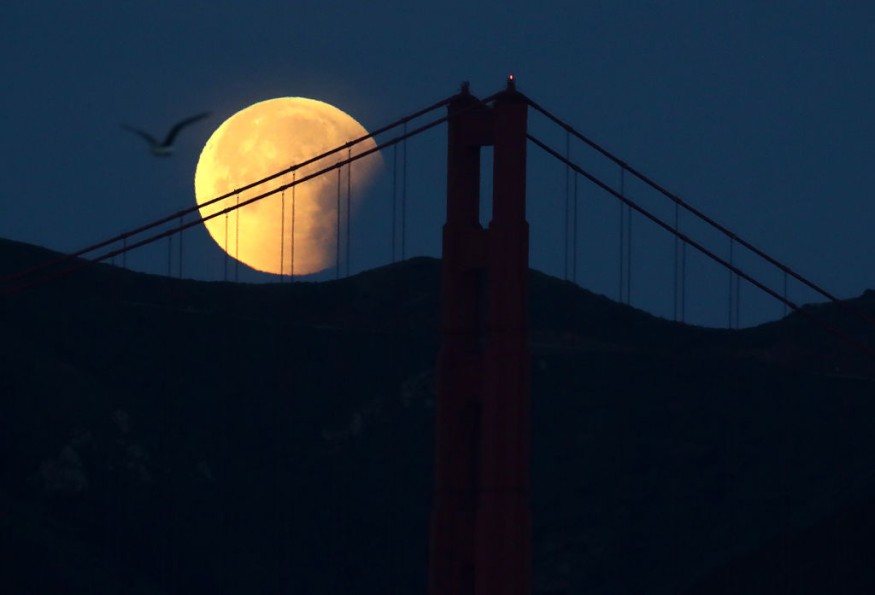Recent research shows that on nights leading up to the full moon, people go to bed a bit later and sleep for shorter amounts of time.
The same differences in both the period of sleep onset and the length of sleep were found by US researchers among college students in urban settings and those living in rural settings.

Over the 29.5-day lunar period, sleep periods usually. During this time, the moon steadily goes from becoming virtually unseen (a new moon) to a completely bright, shining sphere (full moon), then once again.
The experts observed that nights going up to the full moon led to less sleep and falling asleep later, while nights heading up to the new moon resulted in longer sleep and early turn-ins.
The analysis is published in Science Advances.
Why Does It Matter?
It can be sufficient to change the sleep period by such a considerable length of time influencing how much sleep people receive overall. It may have severe knock-on impacts on the well-being of people. Past research shows that an ideal amount of sleep is available, seven hours. Hence, an hour and a half of variation are necessary.
Leandro Casiraghi is a professor at the University of Washington's Department of Biology and a co-author of the analysis. He told Inverse that he and his classmates were not yet ready to trust their own findings.
They had this prior literature, Casiraghi says, claiming this was an actual reality. But they've never seen that in actual life before, so that's very amazing.
Does It Have to Do With Light?
The experts agree that after sunset, evenings leading up to the full moon have more natural moonlight available, serving like something of a sunlight surrogate, yet our connection to energy will interrupt this.
Simple lunar regulation of sleep, with sleep, declining and a later onset of sleep in the days preceding a full moon, was noted by study author Horacio de la Iglesia at Washington University.
In areas lacking connection to power, while the impact is more robust, the effect is present in communities with energy, like college students.
Human beings on Earth witnessed a new moon, a waxing moon (when the volume of light on the moon increases), a full moon, and finally, a waning moon over the 29.5-day lunar period (when its visible surface area is getting smaller).
As it advances toward a full moon, the waxing moon gets gradually brighter and usually increases in the late afternoon or early evening, putting it high in the sky until dusk throughout the evening.
As the moon rises too late in the evening at certain times in the solar cycle, the first part of the full moon period and fading moons often send off considerable light in the middle of the night.
How They Did The Study
Researchers monitored the sleep habits of 98 people living in three Toba-Qom indigenous groups in Argentina using wrist monitors.
De la Iglesia told Healthline that Toba-Qom, who reside in neighborhoods with varying degrees of electricity connectivity, have been studied.
Over the study period, these groups varied in access to electricity:
- One society didn't have electricity.
- Another had restricted access, such as a specific source of artificial light, to electricity.
- A third group existed in a metropolitan area where energy was completely available.
For about 75 percent of the Toba-Qom respondents, researchers obtained data for one to two lunar cycles.
As the moon went through its 29.5-day period, researchers noticed respondents in all three groups exhibited the same sleep rhythm shifts.
On average, the last time people went to bed, they spent at least three to five days until the full moon.
Then they also examined sleep-monitor data obtained for a different analysis from 464 Seattle-area college students to identify the same trend of sleep shifts.
Is a Social Trend Playing a Role?
Dr. Vsevolod 'Seva' Polotsky, director of Sleep Basic Science and a professor at Johns Hopkins Medical School, who is not involved in the study, told CNN that the genetics of humans and the social habits of a group may also play a role in the sleep cycle observed in this study.
Our circadian rhythm, an internal clock that governs sleep for around a 24-hour cycle, influences people's sleep. However, certain people may have longer internal clocks, Polotsky said.
An excellent example of the human body controlling itself over a prolonged period is the menstrual cycle of a woman, he said, which is about a month-long. Other species have seasonal circadian rhythms and, Polotsky observed, sleep for months at a time.
Social calendars may also influence someone's sleep habits, he said, such as going to sleep later or staying on weekends for longer.
De la Iglesia suggested minimizing bright lighting and screens throughout the nighttime hours for those who have difficulty getting to sleep and being more proactive before a full moon. Certain people are accustomed to having a later start to sleep and a night of shorter sleep.
Check out more news and information on Sleep Study on Science Times.












